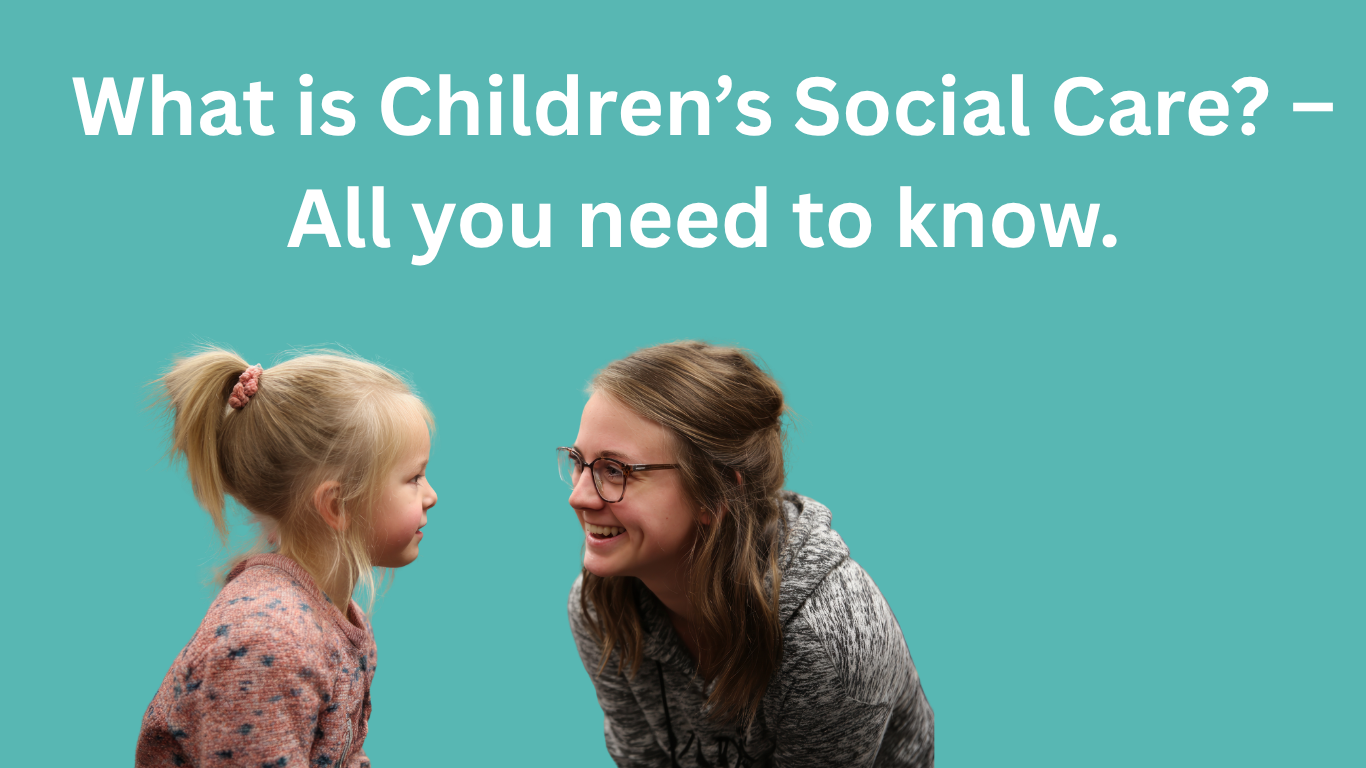
Published in Children Services on 14/10/2025
Children’s social care in the UK supports children, young people, and the families of those who need extra help in protecting these young people and children from harm. The aim of children’s social care is to keep families together if possible, and where not, provide alternative homes to children and young people.
According to reports in summer 2025, 400,000 children (3% of all children in the UK) are in the social care system at any given time. This includes children with child protection plans and children in need. This shows just how critical our children’s social care sector is, and how important it is to continue to work at making it better and more effective at helping children and young people.
What is Children’s Social Care?
Children’s social care refers to all forms of personal care that are available for young people and children who need additional support. Having good social care in place can open up opportunities for children and improve their mental health.
Local authorities have the responsibility of ensuring that the children who live in their area are safe and are supported to be healthy. If there is an instance where this is not the case for a child, then children’s social care will support the familiesor individuals who are struggling. Social workers can work for local authorities or for charities commissioned by said local authority to then provide the essential support that the child needs.
Social care support can range from low-level supports like home visits to ensure that a young person is kept involved in their community and active. Alternatively, the support can be higher level from healthcare, foster care, therapies and more.
Who Provides Children’s Social Care?
Social care for children is overseen by the local authority area in which they reside. The provision of social care will depend on the situation and individual needs of the child. This can vary from having a social worker assist in assessments, support worker to aid the child in accessing the resources they need and supporting them in their independence, or social care workers who may support a child in residential care. This can also cover educational assistance and referrals for SEND assistance or medical support.
All of the types of social care provided and the different bodies and people who provide social care to children is managed and funded by the local authority area. For example, in the instance a child requires residential care, the local authority will seek out the most suitable location and care provider for this child, who will provide the care required to meet the child’s needs. The local authority will fund the child’s care until it is either not needed or is reassessed as an adult.
When is Children’s Social Care Involved?
Children can enter care for a variety of reasons; this could be that the child has such needs that the parents cannot meet at home, or need help in doing so. It can also be the case that the child is at risk of harm, whether at home or outside of the home. Care also covers children who have additional learning needs or learning disabilities, or if those do not have anyone to look after them. Social care is in place to help children stay safe and give them the best opportunities.
Challenges and Innovation in Children’s Social Care
In 2024, the UK Government made a pledge to reform the children’s social care system to improve the outcomes for looked-after children, as well as those in care. This reform also looks to address the funding crisis that the system faces.
There have been concerns in the sector surrounding excess profit-making; however, this is not a new thing. There are investigations into why fees charged by private and independent sectors are higher than those provided by local authorities. This can include considerations of placement complexity, taking into account factors such as additional therapeutic supports or one-to-one care.
The UK government does not intend on implementing profit caps immediately, but looks at implementing measures in rebalancing the market so cost reflects care and meets needs.
What CareCubed Is Doing in Children’s Social Care
CareCubed is a benchmarking tool usable by providers, ICB’s and Local authorities to break down the cost of care for individuals, accounting for needs, different types of care, therapies and specifications of location. CareCubed enables providers to evidence individual funding requirements and even track goals for the children they care for. This also allows for a translation and transparency of what is included in care plans for children, helping ICBs and Local Authorities understand what care needs a child has and the care they are receiving.
Our tool aims to optimise children’s social care from all sides and provide a level of transparency that fosters comprehension of the needs of children across the UK. We want to work towards fostering a more effective care sector from beginning to end to aid children in gaining more independence to live the most fulfilling lives they can.
CareCubed is a cost-of-care tool that helps define needs-based outcomes and requirements to optimise the care package. This provides a benchmark for the care package, as well as providing comprehension of what the needs are of that individual and what services will optimise the package for positive outcomes. Please get in touch to learn more about CareCubed and book a demo of CareCubed to find out how it can boost efficiency for you.







